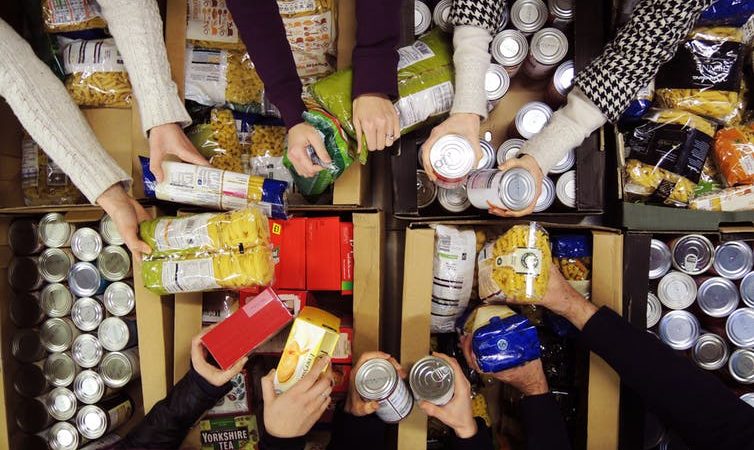The evidence is now undeniable. It's time for movements that can turn this around.

In November last year, UN Special Rapporteur on Extreme Poverty Philip Alston on his visit to the UK described the rising child poverty in these words: “not just a disgrace, but a social calamity and an economic disaster, all rolled into one”.
Alston’s full report from that visit, out today, echoes the findings of many other organisations that have drawn these issues to light: that a decade of austerity measures have deepened inequality to the extent that millions are struggling to make ends meet.
Alston made clear in his statement last year that “more and more working people are trapped in poverty by a rising tide of low pay, debt, and high living costs”. And now in the final report, he places the blame squarely on austerity measures, stating even that “The philosophy underpinning the British welfare system has changed radically since 2010.”
In the last week, the IFS announced a 5-year study on inequality in the UK, indicating the urgency of the crisis. Also, on Monday, Human Rights Watch issued a report indicating how poverty is forcing people into hunger, denying them their basic right to food, and said in no uncertain terms that “This rise in hunger has the UK government’s fingerprints all over it”.
These developments, together with the evidence from Alston’s, underscore what we already know and have known for years. That poverty is political. It is decisions made by politicians that are creating the conditions in which people are being forced to go hungry.
Years of cuts to welfare and essential services, and the rise of precarious low paid work, are now helping to drive the phenomenon that is in-work poverty. And political decisions are bolstered by powerful corporations that use their resources and influence to maximise profits whilst avoiding accountability for the human rights and environmental consequences of their actions.
From Human Rights Watch, to Joseph Rowntree, to the UN, the evidence is clear:
- 14 million, a fifth of the UK population, live in poverty, nearly a quarter of those are destitute
- Child poverty has been rising since 2011/2012, and is predicted to rise further
- Four million workers are living in poverty, despite being in paid work, a rise of more than half a million over 5 years
Human rights experts are documenting how political decisions are violating people’s most basic rights – but it is movements of affected people, as always, who are at the forefront of the battle to ensure that rights are respected.
For those struggling day-to-day, the reality is stark. In the past two years, workers from McDonald’s have resorted to strike action to force the issue of low pay and exploitation, on precarious and zero-hour contracts that give them no guarantee of hours, used and abused by managers who then cut workers off if they complain.
Joseph Rowntree highlights the food industry’s particularly high rates of poverty in the UK, and also links the rise of in-work poverty with cuts to families’ financial support, high housing costs and poor quality jobs with little scope for progression.
Those with extreme wealth have amassed that fortune on the backs of people around the world who work for poor wages and in dangerous conditions with little security. The constant threat of losing the hours you need to survive goes hand in hand with the intensification of work: barely achievable targets that threaten workers’ safety, enforced through the constant threat of dismissal or losing hours.
Think of divide between Jeff Bezos, and the Amazon workers who are typically on insecure contracts and working long hours under intense pressure to meet targets that create unsafe conditions.
Human Rights Watch accuses the government of breaching its international duty to keep people from hunger. At the same time, the UN Special Rapporteur on Extreme Poverty found that “the Government has remained determinedly in a state of denial” about poverty in the UK. These are damning indictments of government policy and what it has brought us to.
Something has to change, radically and quickly. What is needed at the very least is:
- An end to neo-liberal austerity policies that have penalised those unable to work and those on low pay
- A real living wage – not just for those experiencing in-work poverty in the UK, but elsewhere such as those working the supply chains in the garment industry
- An end to exploitation of workers, and the protection of their basic and fundamental rights.
It is movements of people, such as workers coming together into trade unions, who hold the best hope of reversing the consequences of neoliberalism and ensuring that people’s basic needs are met, within environmental limits. Let’s do all we can to support them.
Liz McKean is Director of Policy and Campaigns at War on Want.
Left Foot Forward doesn't have the backing of big business or billionaires. We rely on the kind and generous support of ordinary people like you.
You can support hard-hitting journalism that holds the right to account, provides a forum for debate among progressives, and covers the stories the rest of the media ignore. Donate today.




7 Responses to “UN report: Poverty is at crisis point in the UK – and it’s political”
good cc shop
Hi friends, how iѕ all, and what you desire tto say about this piece
of writing, in myy view its in fact awesome designeԁ for me.
mr alan stringer
im disabled and my benefits have been cut over the last few years,and a minimal increase on whats left,nobody as mentioned us,